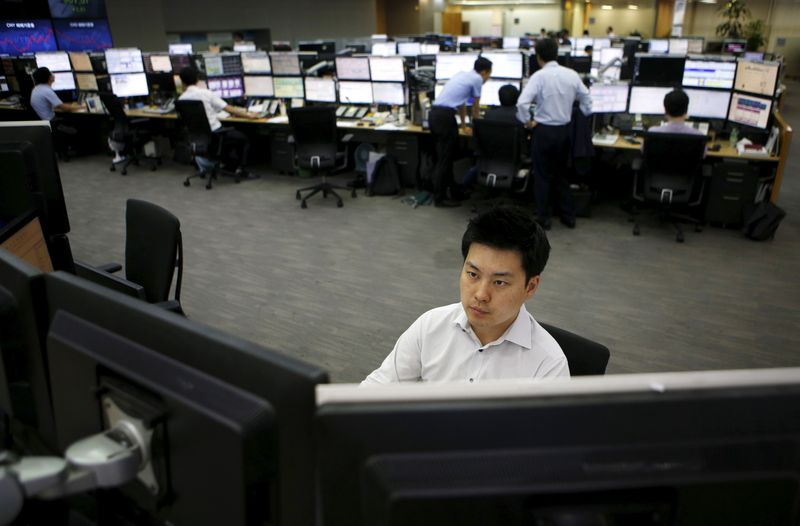By Wayne Cole
(Reuters) - A look at the day ahead in European and global markets from Wayne Cole.
It's been an upbeat start to the week in Asia as markets cast aside concerns about rate hikes, and go straight to pricing in early cuts. All the major equity indices are well into the green with South Korea surging 4%, helped by the re-imposition of a short-selling ban.
U.S. equity futures and Treasuries have steadied after last week's big gains, with everyone waiting to see if yields can extend their bull rally or sellers re-emerge once more. The omens would seem to be positive given how benign the payrolls report was on almost every measure.
Perhaps just as important was the strength of productivity that suggests unemployment does not need to rise as much as in the past to keep inflation restrained. Analysts already note that unemployment has climbed to 3.9%, from a trough of 3.4%, and similar-sized increases in the past have sometimes preceded recessions.
Markets are clearly more confident inflation will continue to slow and that means central banks will have to ease just to stop policy becoming more restrictive in real terms. Fed fund futures imply around an 85% chance the Federal Reserve is done, and an 80% chance it will start cutting in June.
Futures imply an 80% probability the ECB will begin easing as soon as April, and the first BoE rate cut is almost fully priced for August.
Going the other way is the Bank of Japan, albeit at a sedentary pace. BOJ chief Ueda on Monday indicated they were creeping closer to their inflation target, but it was still too soon to abandon super-easy policy altogether.
An outlier here is the Reserve Bank of Australia (RBA) which might well resume hiking on Tuesday after four months of steady policy outcomes. Analysts are almost all-in for a rise to 4.35%, but the market implies it could be a coin toss, setting the stage for some fireworks whatever happens.
Note that at least nine Fed speakers are out this week to generate headlines, including two appearances by Chair Jerome Powell - the second of which on Thursday includes a Q&A session. There are also plenty of ECB speakers on the card, including President Christine Lagarde on Friday.
As for the dollar, the payrolls report has stirred talk that the days of U.S. economic exceptionalism are numbered and the currency could be entering a downtrend. Bears will note the Atlanta Fed's usually reliable GDPNow measure is signalling a sharp Q4 slowdown to just 1.2% annualised.
That is not to say Europe is faring any better, many analysts look for the EU to enter recession this quarter. But expectations were already so low that it's the dollar that has all the downside in the disappointment stakes.
Key developments that could influence markets on Monday:
- Data on German industrial orders, PMIs from across Europe

- Virtual Q&A with Bank of England Chief Economist Huw Pill
- Federal Reserve Board Governor Lisa Cook speaks
(By Wayne Cole. Editing by Sam Holmes)